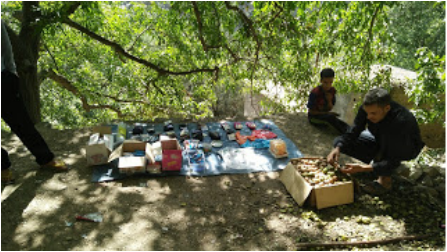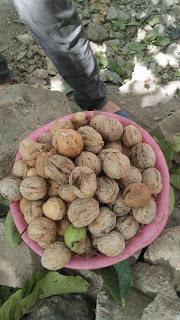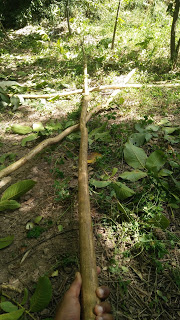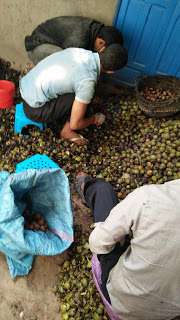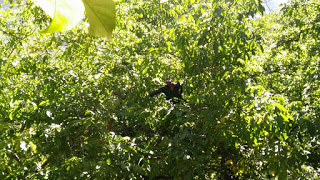Written by CorpsAfrica/Maroc Volunteer Mr. Lahcen Chanchaf
Hello Dear Reader,
During the last week of September, everyone is busy in Azzaden Valley. The same is true on my site, most of the people are gathering walnuts, “Taqqayin,” as the local inhabitants call it. They stay the whole day in the fields enjoying their work. Nonetheless, it’s a hard job to do when it has to do with walnut picking. First, they have to look for workers and not any workers, they need professional ones to climb the trees that sometimes exceed 50 feet in height with tiny branches. That’s not all, when you climb the tree you have to take with you a tall rod called “Algim or Assus” between 13 to 17 feet to thump the walnut tree. If the trees are near a water spring you have to make sure that there is someone to pay attention to not let it go with the flow of water. After the worker finishes from one tree, he orders his fellows to collect what has fallen into medium bags, then he moves to another tree, and so on. It’s a tough job to do especially when you work without insurance. Perhaps, that’s why they receive a good daily service allowance.
Once they finish walnut picking which takes two to three days depending on how many trees they have, they take what they gathered to the roofs of their houses. It stays two days under the sunlight to get dry, but before that, they have to remove the green shield of some walnuts. This shield naturally falls apart from the walnut when it’s still on the tree, in doing so, that means it’s time for picking. However, they don’t wait always until nature does its job completely, they give it a hand even if it doesn’t need any help. What I like most is the way they treat those green shields. Instead of being an unusable waste, they turn it into a compost to use in their farms.
Last but not least, another thing to bear in mind is business during this season. It’s interesting how the commerce goes on. First, I thought they would sell the walnut per kilo, but it was not like that at all. The tool of measurement is their hand, how??? When you ask a seller about the walnut, he tells you “mshk wffus atrit?” how many hands do you want? For example you want ten hands (almost 1 kilo), he puts five pieces of walnut in one hand and five in the other and puts it aside as one hand until you say that’s enough for me.
During the season, small temporary businesses flourished. Yet, it’s a trade without money. Back in the old days, when people had no money, they had to live by quid pro quo. In other words, giving something to receive something equivalent in return. It’s the same in Azzaden Valley in these days. Explicitly, when the local people want to buy something, they don’t pay money. They choose what they want to buy and exchange its value with walnuts. For instance, the kids bring some walnuts from their home and bargain with them in exchange for some candies and biscuits (10 pieces of walnuts 2 candies, and 1 biscuit). On the other hand, the women take some clothes and bargain their value with walnuts and so on. It seems a win-win situation, but it’s not. The most beneficial one here is, not the kids who enjoy licking the candies, nor the women who adore shopping, it is the merchant who unquestionably will… might you finish the phrase please and thank you for your precious time 🙏.

